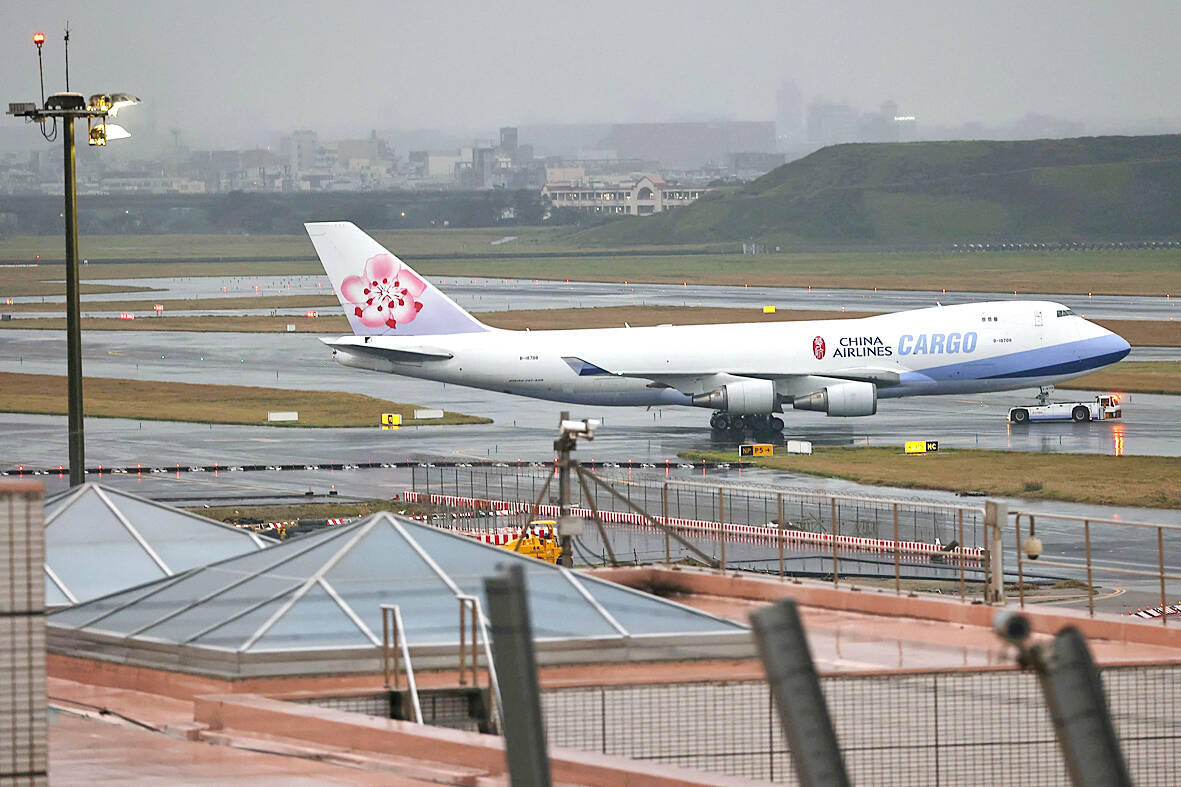Taiwan and the EU held their second Trade and Investment Dialogue on Friday, during which they discussed priority sectors, from offshore wind farms and agriculture to digital trade and trade and investment security.
During the virtual talks, negotiators discussed their regions’ respective transitions to renewable energy sources, carbon pricing initiatives and trade-related climate measures, the office of the EU Directorate-General for Trade said in a statement.
Both sides agreed to discuss digital trade facilitation measures such as electronic invoicing and e-signatures, with the aim of lowering transaction costs and increasing economic efficiency for Taiwanese and EU businesses, it said.

Photo: Ann Wang, Reuters
They are also to continue their cooperation in aligning their sanctions against Russia and preventing their circumvention, the statement said.
The EU discussed its concerns related to how much access its member states’ agricultural exports have to Taiwan’s market, and the localization requirements in the offshore wind and electronic mobility sectors, the statement said.
Both sides spoke positively about the technical exchanges that have taken place since the first dialogue last year on semiconductors, research and innovation, foreign direct investment screening and export controls, the statement said.
They also agreed to pursue their engagement in these areas, it added.
The talks were cochaired by Minister of Economic Affairs Wang Mei-hua (王美花) and EU Directorate-General for Trade Director-General Sabine Weyand.
Taiwan is an important economic partner for the EU, with total trade reaching a record 84.2 billion euros (US$93.1 billion) last year, the statement said.

The brilliant blue waters, thick foliage and bucolic atmosphere on this seemingly idyllic archipelago deep in the Pacific Ocean belie the key role it now plays in a titanic geopolitical struggle. Palau is again on the front line as China, and the US and its allies prepare their forces in an intensifying contest for control over the Asia-Pacific region. The democratic nation of just 17,000 people hosts US-controlled airstrips and soon-to-be-completed radar installations that the US military describes as “critical” to monitoring vast swathes of water and airspace. It is also a key piece of the second island chain, a string of

A magnitude 5.9 earthquake that struck about 33km off the coast of Hualien City was the "main shock" in a series of quakes in the area, with aftershocks expected over the next three days, the Central Weather Administration (CWA) said yesterday. Prior to the magnitude 5.9 quake shaking most of Taiwan at 6:53pm yesterday, six other earthquakes stronger than a magnitude of 4, starting with a magnitude 5.5 quake at 6:09pm, occurred in the area. CWA Seismological Center Director Wu Chien-fu (吳健富) confirmed that the quakes were all part of the same series and that the magnitude 5.5 temblor was

Taiwan will now have four additional national holidays after the Legislative Yuan passed an amendment today, which also made Labor Day a national holiday for all sectors. The Chinese Nationalist Party (KMT) and Taiwan People’s Party (TPP) used their majority in the Legislative Yuan to pass the amendment to the Act on Implementing Memorial Days and State Holidays (紀念日及節日實施辦法), which the parties jointly proposed, in its third and final reading today. The legislature passed the bill to amend the act, which is currently enforced administratively, raising it to the legal level. The new legislation recognizes Confucius’ birthday on Sept. 28, the

The Central Weather Administration has issued a heat alert for southeastern Taiwan, warning of temperatures as high as 36°C today, while alerting some coastal areas of strong winds later in the day. Kaohsiung’s Neimen District (內門) and Pingtung County’s Neipu Township (內埔) are under an orange heat alert, which warns of temperatures as high as 36°C for three consecutive days, the CWA said, citing southwest winds. The heat would also extend to Tainan’s Nansi (楠西) and Yujing (玉井) districts, as well as Pingtung’s Gaoshu (高樹), Yanpu (鹽埔) and Majia (瑪家) townships, it said, forecasting highs of up to 36°C in those areas